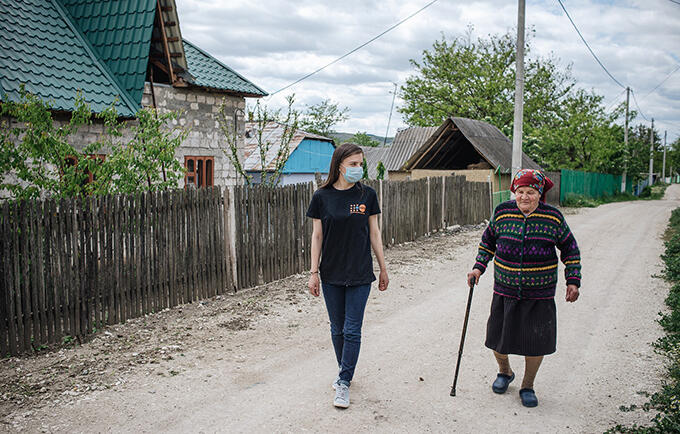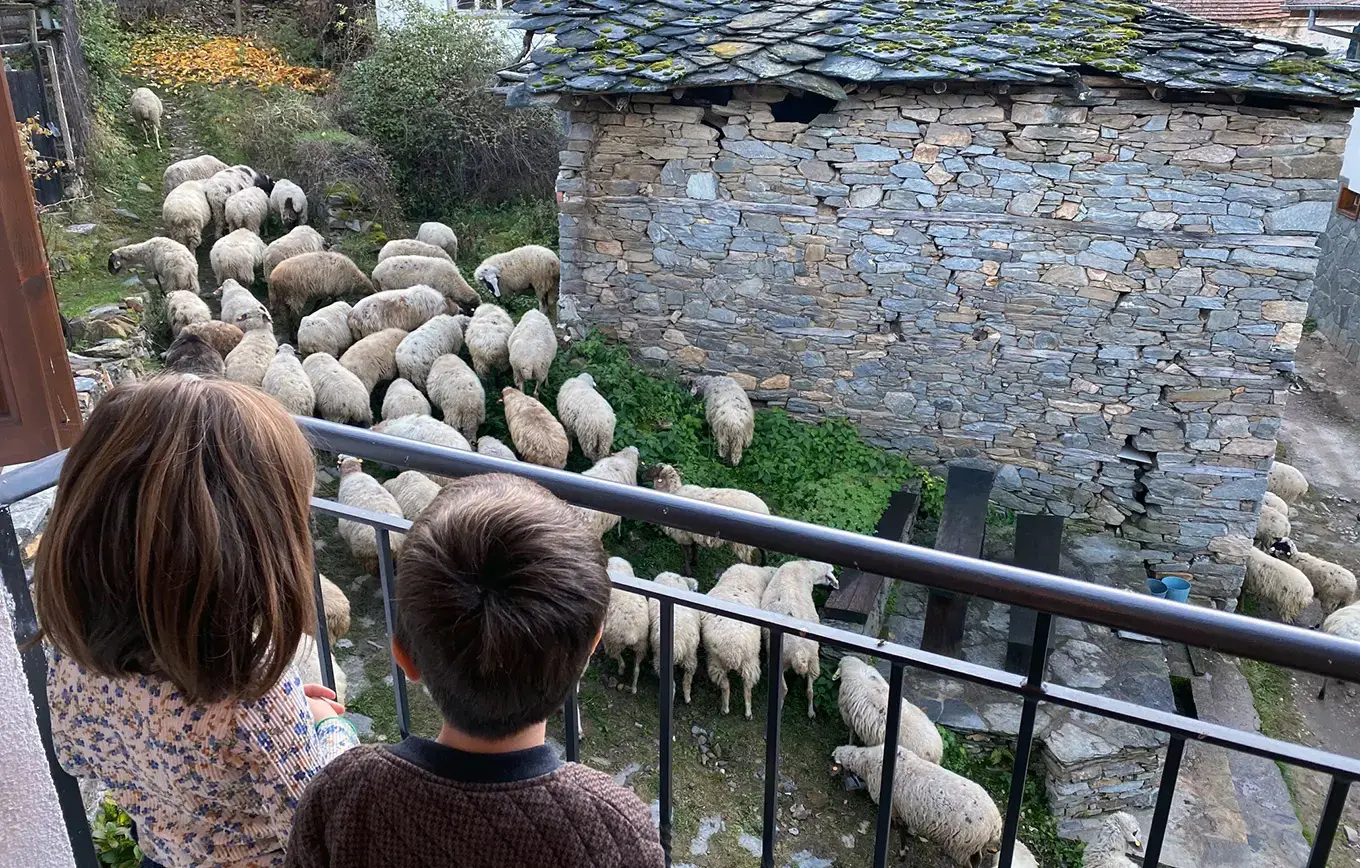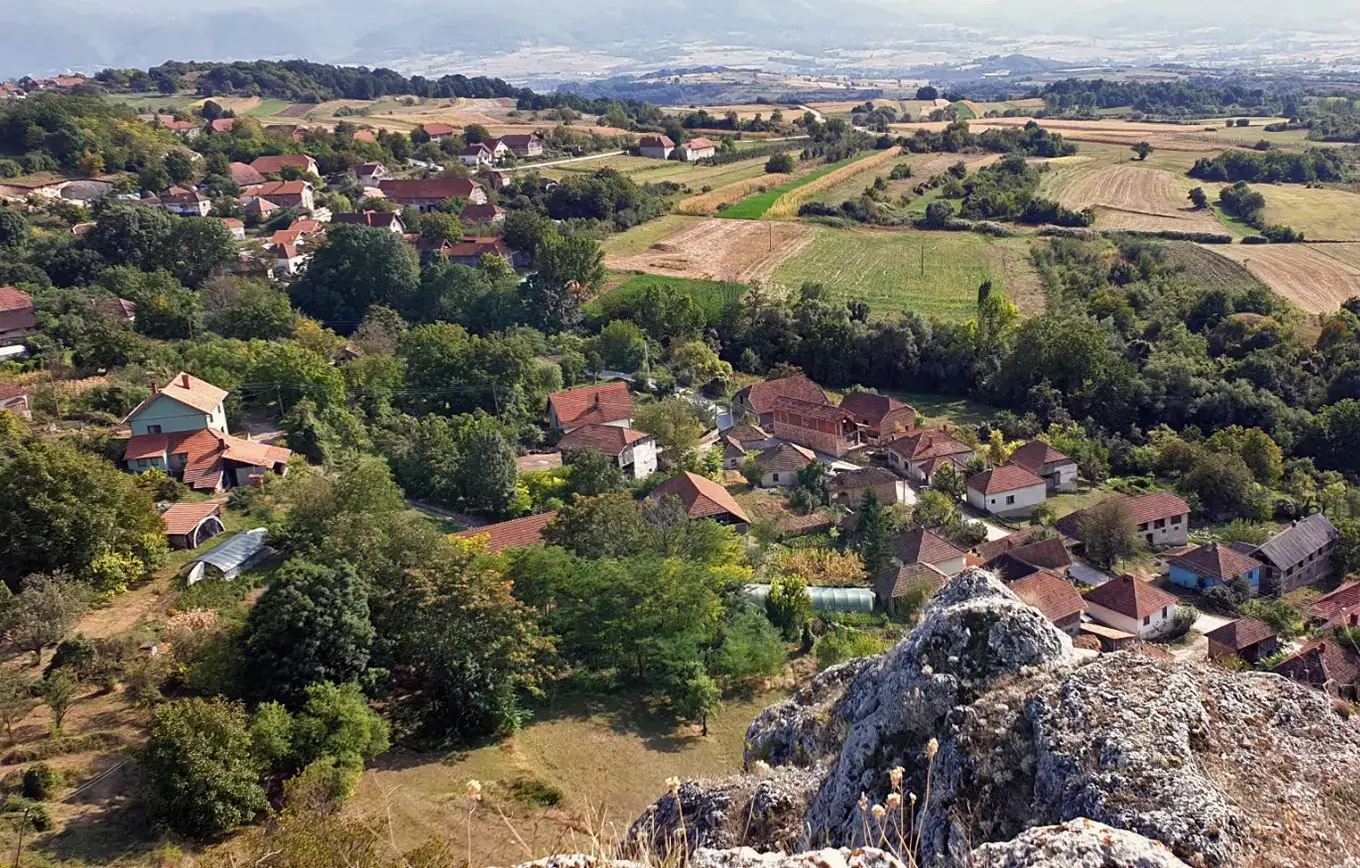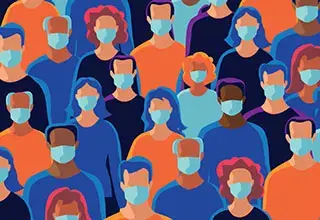CHIȘINĂU, Moldova — When the phone rings, it takes a while for Maria Roșca, age 73, to answer, because she’s been outside in her garden planting vegetables. Roșca has been living alone after her husband died a year ago, and since the COVID-19 pandemic began, she doesn’t go anywhere, not even to visit the neighbours.
There aren’t many people left in her small village in northern Moldova in any event. Those who have not passed away have mostly emigrated in search of better economic prospects, including Roșca’s daughter, who lives in Italy, and her son, who lives in Russia. It’s so quiet around her home that sometimes the only sound Roșca hears in her garden are the birds.
“I keep the TV and the radio on to feel like I’m not alone in the house,” she says. “My children can’t even come home to see me because the borders are closed due to the pandemic.”
Many older people are in a similar situation in Moldova, which has one of the highest emigration rates in Europe. With so many younger people having left the country to work, people age 60 and older make up a fifth of Moldova’s total population. They are often living on their own, and have a higher poverty rate than the national average.
Intergenerational solidarity
Thanks to a UNFPA initiative, however, young volunteers are creating intergenerational bonds with their elders to support them during the COVID-19 pandemic – and to show appreciation for how so many members of the older generation in Moldova took up the role of raising their grandchildren while their parents were working abroad. According to 2019 data from the National Bureau of Statistics, one in every four households in Moldova that include children under 18 years old had at least one family member who migrated for work.
“Talking to ‘Aunt Maria’ [Roșca] and the other grandparents on the phone was a great experience that gave me a chance to learn their stories – some very sad, but others inspiring,” says Nelea Ungureanu, a high-school student who volunteered to call older people and chat with them after she finished her online lessons. “The older people are quite alone, so they always ask me when I will call them again.”
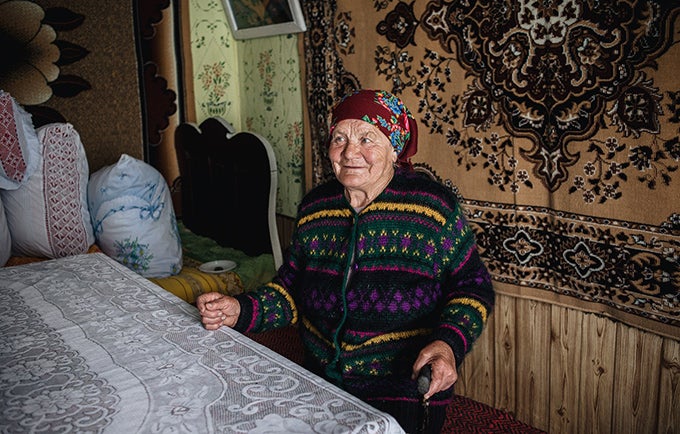
Labour migration has transformed family structures in Moldova, often to the detriment of older generations, according to Mariana Buciuceanu-Vrabie, an associate researcher at the Centre for Demographic Research in Chișinău. “The long-term absence of adult children has left many older people without help for their age-specific needs,” she says. “The financial support that migrant children provide does not always compensate for the lack of family care when it comes to health problems, emotional support and general well-being.”
These issues have been amplified by the COVID-19 pandemic, with older people among the most vulnerable to serious infection or death, and also more negatively affected by social isolation measures taken to try and stem the spread of the disease.
Building a society for all ages
“I hope that this crisis, and the horrifying effects it has on many older people, will come to be a turning point for how we see and treat older people in society,” UNFPA Regional Director Alanna Armitage wrote recently in an op-ed. “We must learn from past mistakes and get serious about creating a society for all ages in which older people are recognized and supported, as the important pillars of society. This is not only a moral imperative; it’s a win-win for all, old and young alike.”
The UNFPA initiative in Moldova has reached 200 isolated older persons to date with phone calls and socially distant visits by young volunteers who have received training from a psychologist and an epidemiologist.
“Older people are among the most affected by social isolation in the context of COVID-19, and we thought that young people could help support them emotionally,” says Natalia Plugaru, UNFPA Deputy Representative in Moldova. “We work with our government partners and civil society in various ways to develop an intergenerational dialogue to ensure that the dignity and rights of older people are protected, and their potential is fully met.”
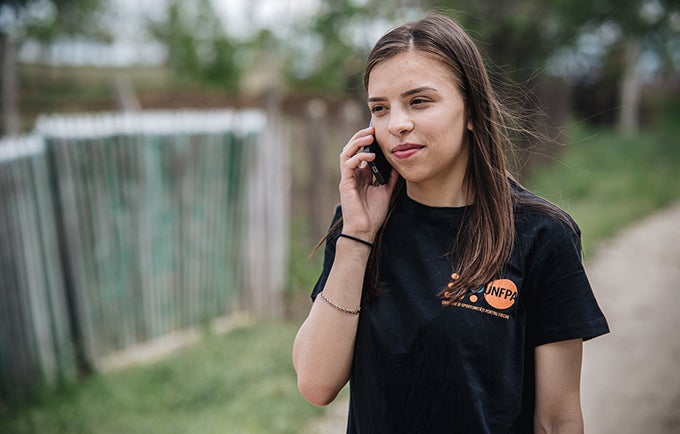
Helping older people amidst the pandemic
As part of the same initiative, UNFPA and the Ministry of Health, Labour and Social Protection previously delivered packages to older people containing essential hygiene and food products, as well as information materials on how to protect themselves against COVID-19. UNFPA Moldova has also worked with young people on an online campaign to encourage their friends and family, especially their older relatives, to stay at home to help stop the spread of COVID-19.
“We recommend that older people avoid crowded places, and to encourage them to seek the help of their neighbours or relatives, but without any direct contact,” says Dorina Pogreban, a resident epidemiologist at the National Agency for Public Health who helped train the young UNFPA volunteers.
“I wanted to volunteer for this project because I know how difficult it is for an older person who can’t be with their children or grandchildren, but also to fill the void in my soul since my grandfather, who was the sunshine in our household, died three months ago,” says Ungureanu. “Older people are the ones we go to for advice, help and support, but they are also the most vulnerable, especially now in the pandemic context. Each one I talked with told me that it is difficult for them to be alone. That’s why we have to make time to listen to them.”
Another UNFPA volunteer, Maria Negru, agrees that the initiative to connect younger and older people benefits both generations.
“I laughed with the older people I called, and I cried when they told me about their relatives who emigrated from the country,” she says. “But just as often as I encouraged them, it worked the other way around, too – they encouraged me.”

